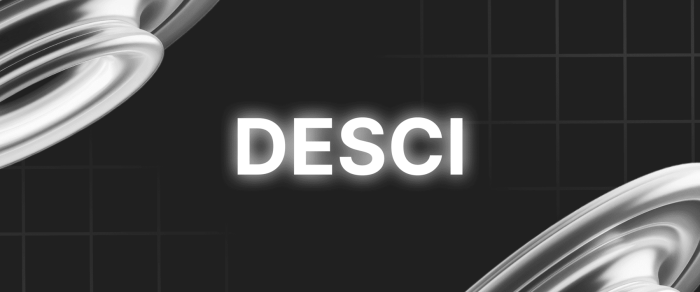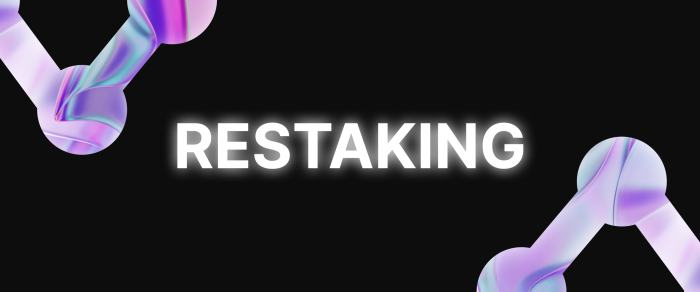DeSci Decoded: The Rise of Decentralized Science and Its Impact on the Future
In 2016, a survey of 270 scientists revealed that the relentless pursuit of funding, driven by an increasingly competitive grant system, is one of the most significant obstacles to scientific progress.
This traditional funding model often forces researchers to spend more time writing grant applications than conducting actual research, stifling innovation and slowing the pace of discovery.
Enter Decentralized Science, or DeSci—a transformative movement leveraging blockchain technology and decentralized networks to democratize research funding, enhance transparency, and foster global collaboration.
Key Takeaways
- Modern science faces significant challenges, including restricted access to knowledge and biased funding systems, which limit global collaboration and innovation.
- Decentralized Science (DeSci) uses blockchain and AI to make science more open, fair, and easier for everyone to join.
- Projects like VitaDAO, Molecule, and ResearchHub are changing how research is funded, shared, and managed to help scientists everywhere.
- DeSci still faces challenges like data costs and legal rules, but it can potentially transform how science works in the future.
Problems in the Modern Science
Modern science has been the driving force behind countless advancements that shape our world today, yet it is far from perfect.
The centralized structure that dominates research has led to a host of problems, creating barriers to innovation, inclusivity, and global collaboration. These issues not only hinder progress but also limit the potential for science to benefit all of humanity equally.
Paywalled Research
One of the most glaring issues in modern science is restricted access to knowledge. Despite being the foundation of progress, research findings are often locked behind expensive paywalls.
Many prestigious journals require costly subscriptions or charge high fees for individual articles, ranging from $30 to $50 each. This system excludes scientists from less affluent institutions, researchers in developing countries, and even the general public—who often fund this research through their taxes but are denied access to its results.
Opaque Funding Processes
Funding is another critical bottleneck. Securing financial research support is dominated by a few institutions and agencies. Their opaque decision-making processes often prioritize safe, incremental projects over bold, groundbreaking ideas. Researchers can spend up to 40% of their time applying for grants without a guarantee of success.
Moreover, the current system tends to favor established scientists and institutions, marginalizing early-career researchers and those from underrepresented groups.
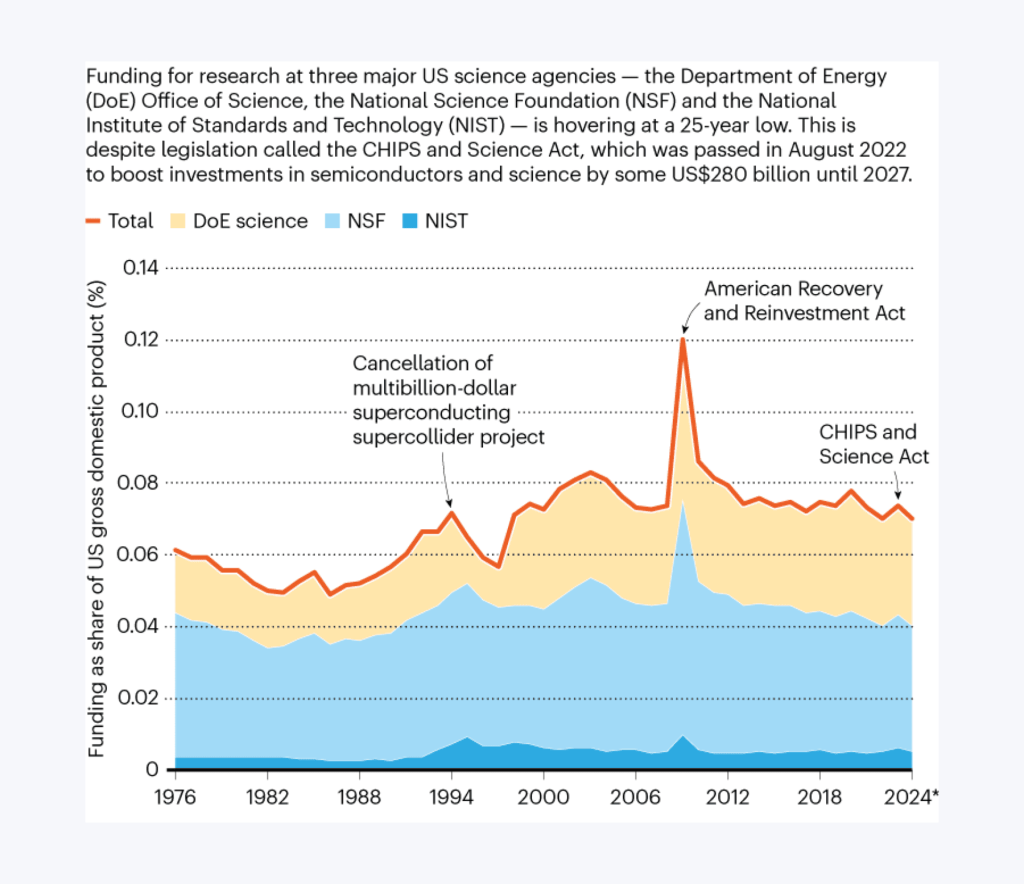
Limited Global Collaboration
Collaboration, a cornerstone of scientific progress, also suffers in this environment. Geographical and institutional barriers make it difficult for scientists from different parts of the world to work together.
The competitive nature of funding and publishing further discourages collaboration, fostering an environment where individual achievements are prioritized over collective progress.
High Costs of Publication
Publishing research comes with its own set of challenges. Many journals charge high fees for open-access publishing, with article processing charges (APCs) reaching thousands of dollars. These costs can be prohibitive for researchers, especially those in resource-limited settings.
Additionally, the rise of predatory journals—publications that charge authors fees without providing proper editorial oversight—undermines the integrity of the scientific enterprise.
Adding to these challenges is the immense pressure to publish. The “publish or perish” culture in academia drives researchers to prioritize quantity over quality, resulting in rushed studies, data manipulation, and, in some cases, outright fraud. Metrics like the number of publications and citations have become the primary measure of success, overshadowing the actual impact of the research.
Monopolization by Elite Institutions
Finally, the concentration of power in elite institutions exacerbates these issues. A small number of organizations control access to resources, publishing opportunities, and policymaking, effectively acting as gatekeepers of the scientific world. This limits opportunities for outsiders to contribute and stifles the diversity of ideas needed for true innovation.
What Is DeSci?
Decentralized Science is a new way of thinking about science that uses blockchain, cryptocurrencies, and decentralized systems to fix some big problems in the way science works today. DeSci is all about making science fairer, more open, and easier for everyone to access.
Inspired by other movements like Web3 and decentralized finance (DeFi), DeSci uses tools like DeSci crypto and blockchain networks to make science more democratic. This approach gives researchers and communities more control and freedom to share ideas and work together.
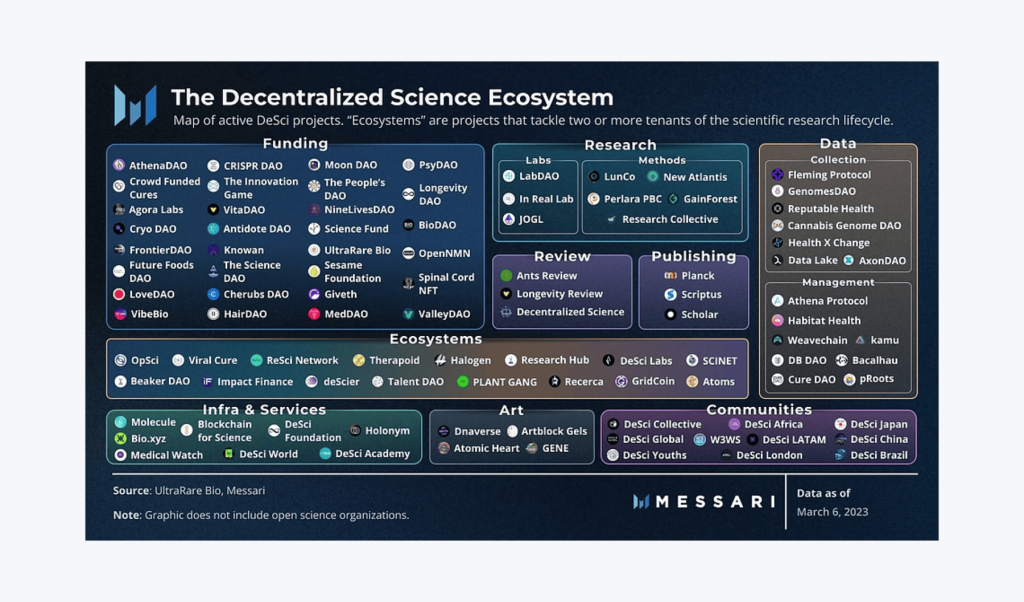
Principles of Decentralized Science
DeSci is built on several core principles:
- Transparency and Open Access: DeSci promotes unrestricted research and data sharing.
- Peer-to-Peer Collaboration: Decentralized platforms enable scientists to connect and collaborate without intermediaries.
- Ownership and Incentivisation: Researchers retain ownership of their work, with rewards managed via DeSci tokens.
- Democratized Funding: Crowdfunding through blockchain mechanisms eliminates reliance on traditional grant systems.
By addressing these issues, DeSci aligns with the ethos of decentralization: empowering individuals, ensuring fairness, and creating trustless systems.
How DeSci Works: Technology and Tools
DeSci leverages a suite of advanced technologies to address the challenges inherent in traditional scientific research:
Blockchain and Smart Contracts
Blockchain technology is at the heart of DeSci. It ensures data integrity and transparency through decentralized, immutable ledgers.
Smart contracts—self-executing agreements coded onto the blockchain—automate processes such as fund distribution and intellectual property management, reducing administrative overhead and enhancing stakeholder trust.
DeSci Crypto and Tokens
Cryptocurrencies, particularly DeSci tokens, play a pivotal role in this ecosystem. They serve as incentives for participation, facilitate funding mechanisms, and enable decentralized governance. Researchers can receive token-based rewards for their contributions, and communities can collectively decide on funding allocations, democratizing the research process.
Decentralized Autonomous Organizations (DAOs)
DAOs are member-owned communities without centralized leadership, operating through smart contracts on the blockchain. In DeSci, DAOs enable collective decision-making, allowing researchers and stakeholders to govern scientific projects collaboratively. This structure promotes inclusivity and ensures that diverse voices contribute to the direction of scientific endeavors.
Decentralized Data Storage
Platforms like the InterPlanetary File System (IPFS) provide decentralized data storage solutions, ensuring that research data is both secure and accessible. Unlike traditional centralized databases, decentralized storage mitigates risks associated with data loss or censorship, promoting open access to scientific information.
DeSci AI Agents
Artificial Intelligence (AI) and Machine Learning (ML) enhance DeSci by automating complex tasks such as data analysis, peer review, and collaboration management. DeSci AI agent tools can process large datasets more efficiently, identify patterns, and even assist in hypothesis generation, accelerating the pace of scientific discovery.
Open Access and Collaboration Platforms
DeSci promotes open-access publishing and collaborative research through decentralized platforms. These platforms eliminate traditional gatekeepers, allowing researchers to share findings freely and collaborate across borders. Such openness accelerates innovation and ensures that scientific knowledge is accessible to all.
Intellectual Property and NFTs
Non-fungible tokens (NFTs) offer a novel approach to managing intellectual property in DeSci. By tokenizing research outputs, NFTs provide verifiable ownership and provenance, enabling researchers to control the distribution and monetization of their work. This system ensures that creators receive appropriate recognition and compensation for their contributions.
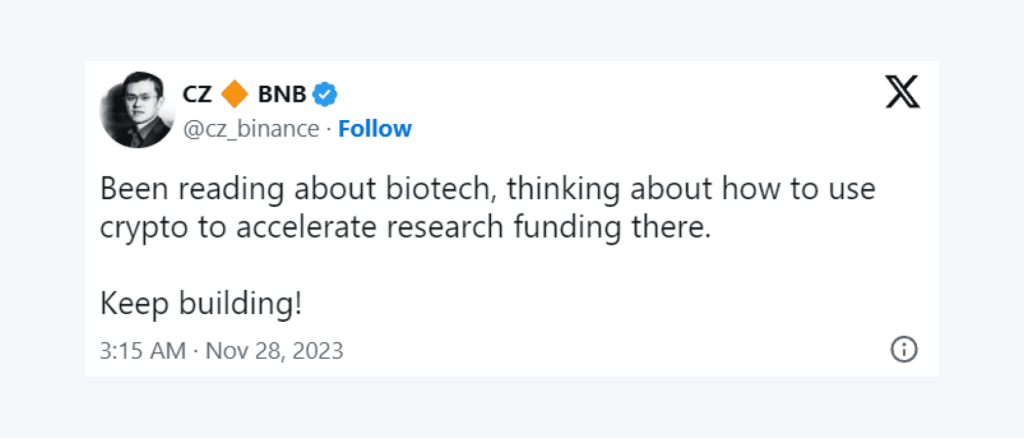
Prominent DeSci Projects
DeSci is changing the way research is done by using new technologies to solve some of the biggest problems in science. Here are a few important projects leading the way:
1. VitaDAO
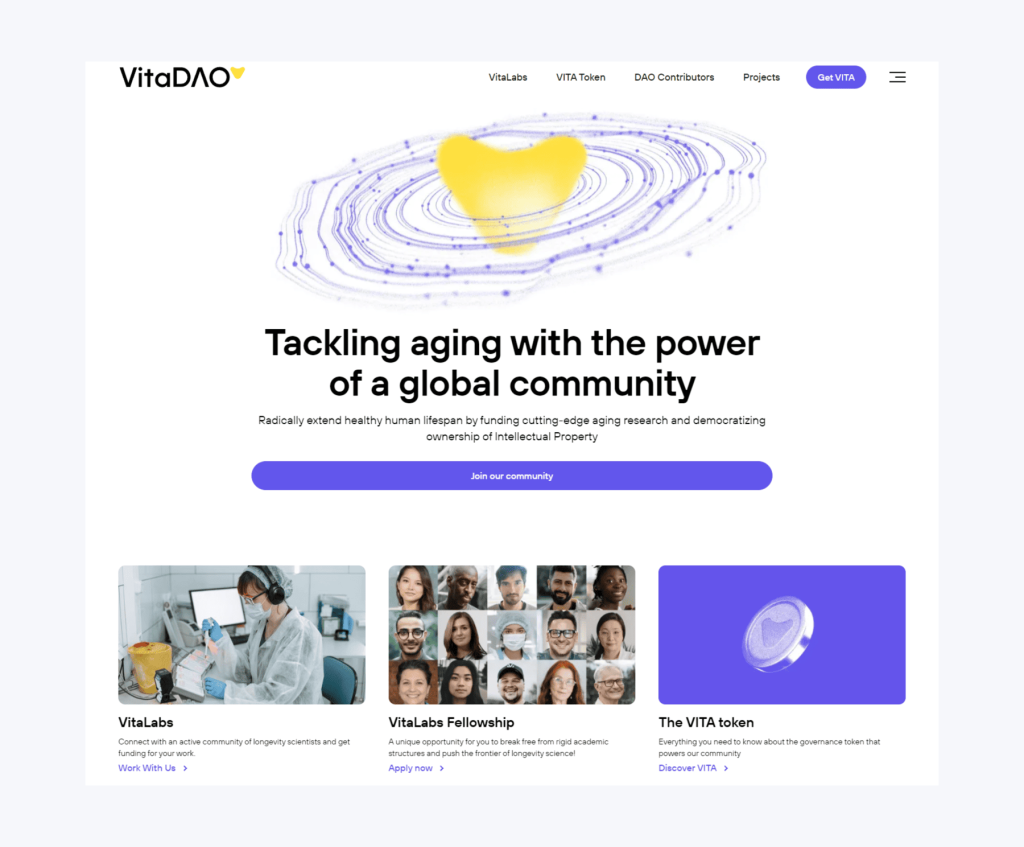
VitaDAO is a DAO focused on financing and promoting longevity research. It aims to decentralize drug development to enhance the human lifespan. VitaDAO supports early-stage research initiatives to develop them into biotech firms.
The organization functions through a community-driven governance model, enabling members to engage in decision-making related to research priorities and funding distributions. It has already raised $4.1 million and is backed by Pfizer and former Coinbase CTO Balaji Srinivasan.
2. Molecule
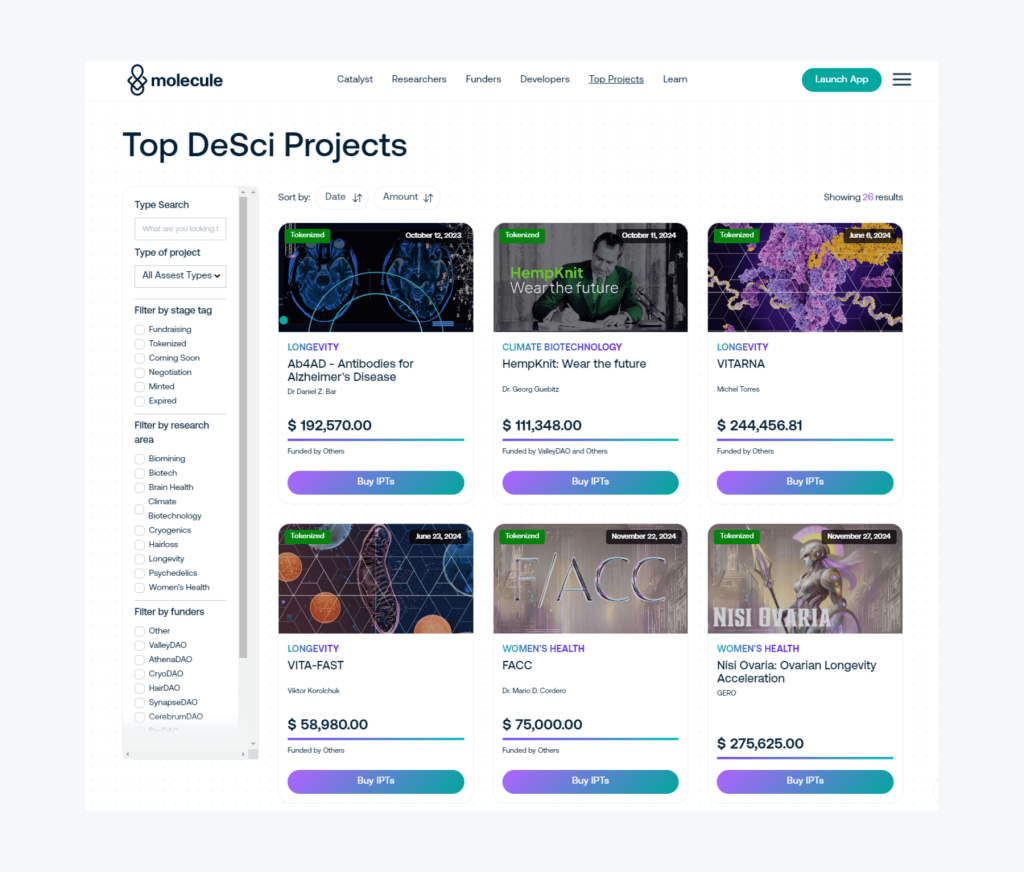
Molecule is a platform that helps researchers find funding for their projects by turning their ideas into digital assets called IP-NFTs (Intellectual Property Non-Fungible Tokens). These tokens let people invest in research, giving scientists more ways to fund their work.
3. ResearchHub
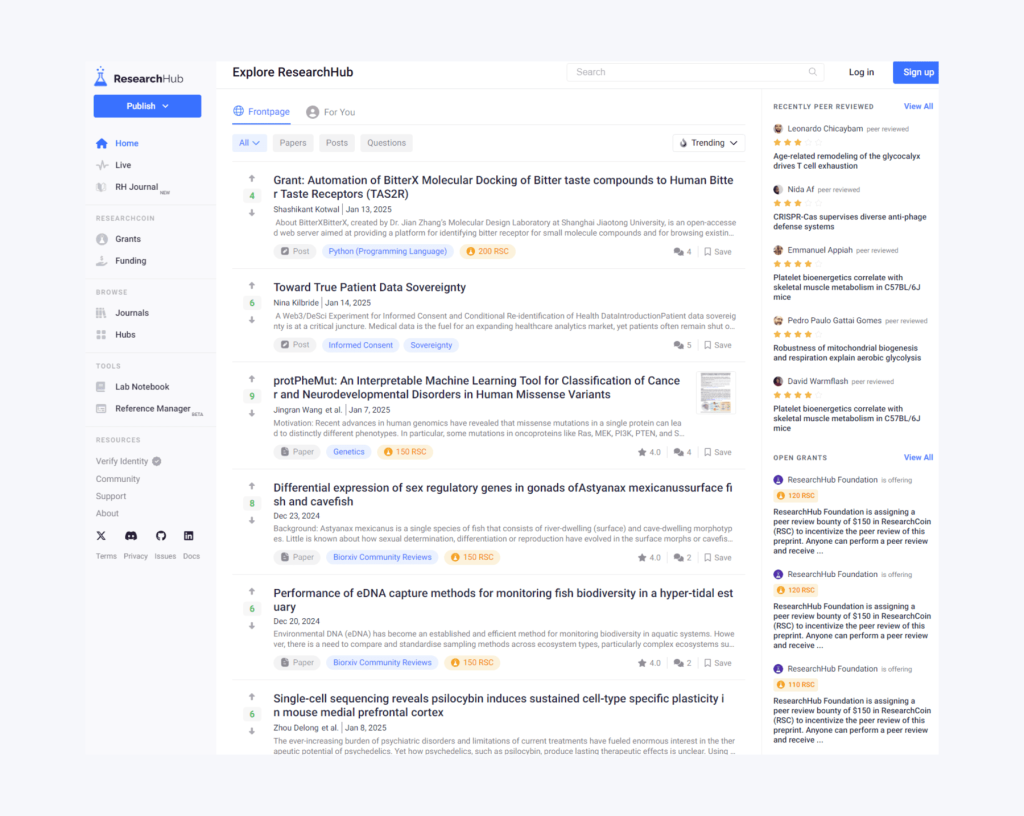
ResearchHub is a platform that speeds up scientific discovery by encouraging researchers to share their work, discuss ideas, and build a community knowledge base.
Scientists who contribute are rewarded with ResearchCoin (RSC), which motivates them to stay active on the platform. This approach makes academic publishing more open and accessible for everyone.
4. AthenaDAO
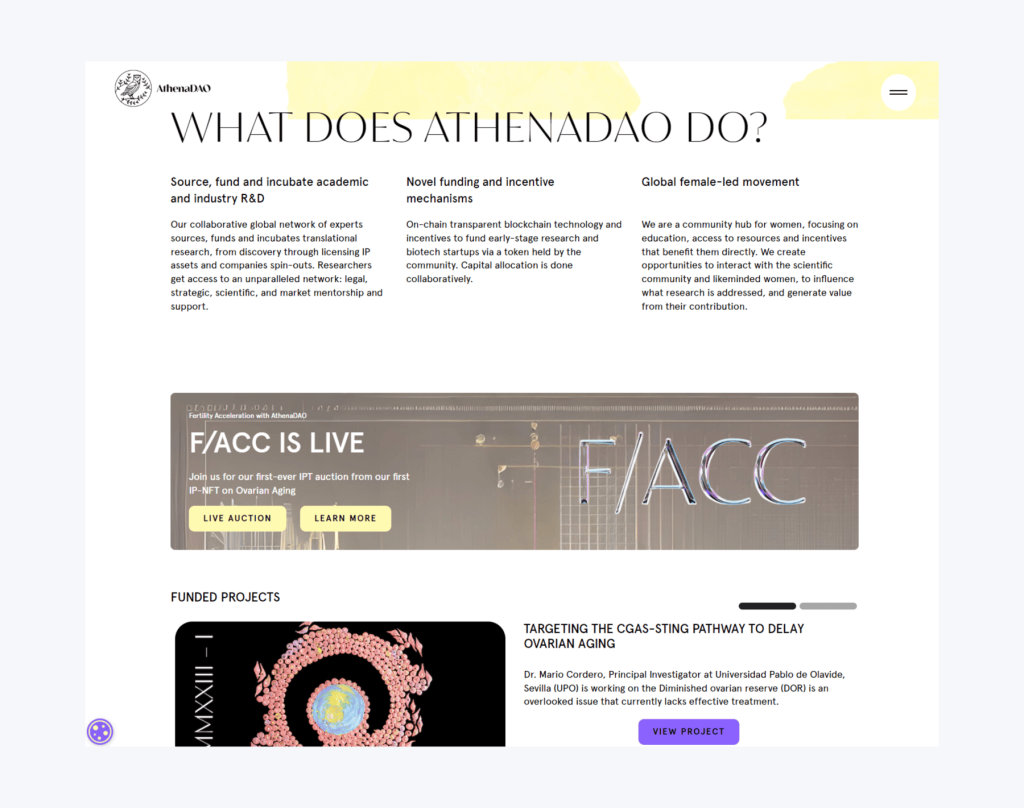
AthenaDAO focuses on funding research on women’s health, an area that has often been underfunded. The organization supports studies on issues like ovarian aging, menopause, and endometriosis.
AthenaDAO uses a community-driven system in which members decide which projects to fund, ensuring the research aligns with the needs of women worldwide. It also collaborates with platforms like ResearchHub to make these studies happen.
5. Bio.xyz
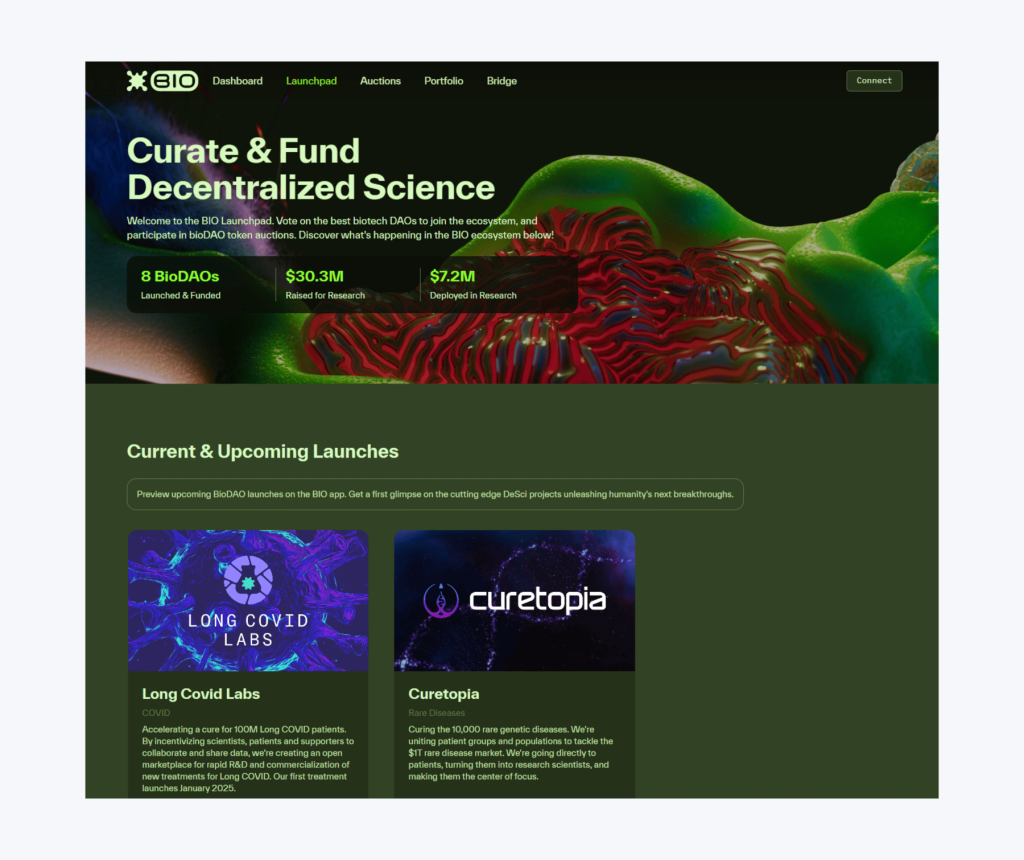
Bio.xyz is a launchpad and accelerator for biotech DAOs (BioDAOs) and DeSci projects. It provides funding, resources, and support to teams building decentralized biotech organizations. Bio.xyz helps these teams navigate the unique challenges of creating both a DAO and a biotech company, aiming to advance scientific research through decentralized funding and governance.
The Role of DeSci Tokens in the Ecosystem
DeSci tokens are a big part of decentralized science. They help scientists and communities work together, fund research, and make decisions fairly.
Rewards for Contributors
In traditional science, people who contribute to research, such as reviewers or collaborators, often don’t receive rewards. DeSci tokens fix this problem by rewarding everyone who helps.
- For Scientists: Researchers earn tokens when they share their work, data, or ideas.
- For Reviewers: People who review research papers get tokens, making the process more fair and encouraging participation.
- For Supporters: People who fund or help with research can earn tokens, too, giving them a reason to stay involved.
This system ensures everyone’s work is appreciated and creates an active, thriving community.
Funding Research
One of the most exciting uses of DeSci tokens is funding research directly without needing big institutions or government grants.
- Crowdfunding Projects: Scientists can present their projects to the community, and token holders can pool their resources to support them. This makes it easier to fund creative or risky ideas that traditional systems might ignore.
- Small Contributions Matter: Even people with a small amount of tokens can contribute, opening up funding to more people.
- Transparent Use of Funds: Since everything is recorded on the blockchain, contributors can see exactly how their money is being used.
Decision-Making and Governance
DeSci tokens also allow communities to make decisions together.
- Voting Rights: Token holders can vote on important decisions, such as which projects to fund or how to develop the platform.
- Shared Control: Instead of a few people making decisions, everyone with tokens has a say, making the process more fair and transparent.
- Aligned Interests: Since token holders benefit when the platform succeeds, they’re motivated to make good decisions.
Challenges of DeSci
While DeSci has the potential to improve how science is done, it also faces some important challenges that need to be solved for it to succeed.
Limited On-Chain Storage
Storing large amounts of data on blockchain systems is very expensive. Scientific research often involves massive datasets, and current blockchain technology isn’t designed to handle this efficiently.
Although new technologies, like data availability layers, are being developed to reduce costs and increase storage capacity, these solutions are still in progress. DeSci must find ways to manage data effectively without breaking the budget.
Legal and Privacy Concerns
DeSci operates within a world of strict legal rules around data privacy and intellectual property. For example, laws often allow individuals to delete their personal data, but blockchain’s permanent nature makes this impossible.
Additionally, while smart contracts can enforce certain agreements on-chain, they cannot resolve legal disputes in the real world, such as IP theft. DeSci projects must find ways to comply with these laws while using blockchain technology.
Fitting Into Real-World Research
For DeSci to work in practice, it needs to align with how science is done today. Researchers and institutions need tools that are easy to use and compatible with existing systems. If DeSci solutions feel too different or complex, adoption will be slow. Balancing innovation with practicality is key to ensuring that DeSci becomes a trusted part of the research process.
Conclusion
DeSci is the new approach that can open knowledge to everyone, give researchers more power, and create a fairer system for sharing discoveries. As DeSci continues to grow, it’s up to innovators, funders, and scientists to embrace this new way of working and help shape the future of science.
DeSci isn’t just an idea for the future—it’s already happening. Whether by joining DeSci projects, using DeSci tokens, or exploring AI tools, there are many ways to get involved. Science is becoming more decentralized, and it’s an exciting time to be part of this change.
FAQ
What are the benefits of DeSci?
DeSci uses blockchain and decentralized systems to make science more open, fair, and accessible. It helps researchers get funding, collaborate globally, and share their work without traditional barriers like paywalls or institutional gatekeeping.
Is DeSci the next big thing?
DeSci has the potential to revolutionize scientific research by addressing major issues like funding shortages, limited data sharing, and restrictive publishing models. With its focus on blockchain and Web3 technologies, DeSci is poised to grow significantly in the coming years.
How do you buy VitaDAO?
To buy VitaDAO (VITA), you must first purchase cryptocurrency like Ethereum using tools like Ramp. Once you have ETH, you can exchange it for VITA and pay network fees during the transaction.
What is an example of a successful DeSci project?
VitaDAO is a great example. It uses decentralized governance to fund and support research on longevity and health, empowering its community to vote on which projects to prioritize.
Can DeSci replace traditional science systems?
DeSci isn’t a replacement for traditional science but a complement to it. It addresses gaps in funding, collaboration, and accessibility and enhances the way science is conducted and shared, making it more inclusive and efficient.
